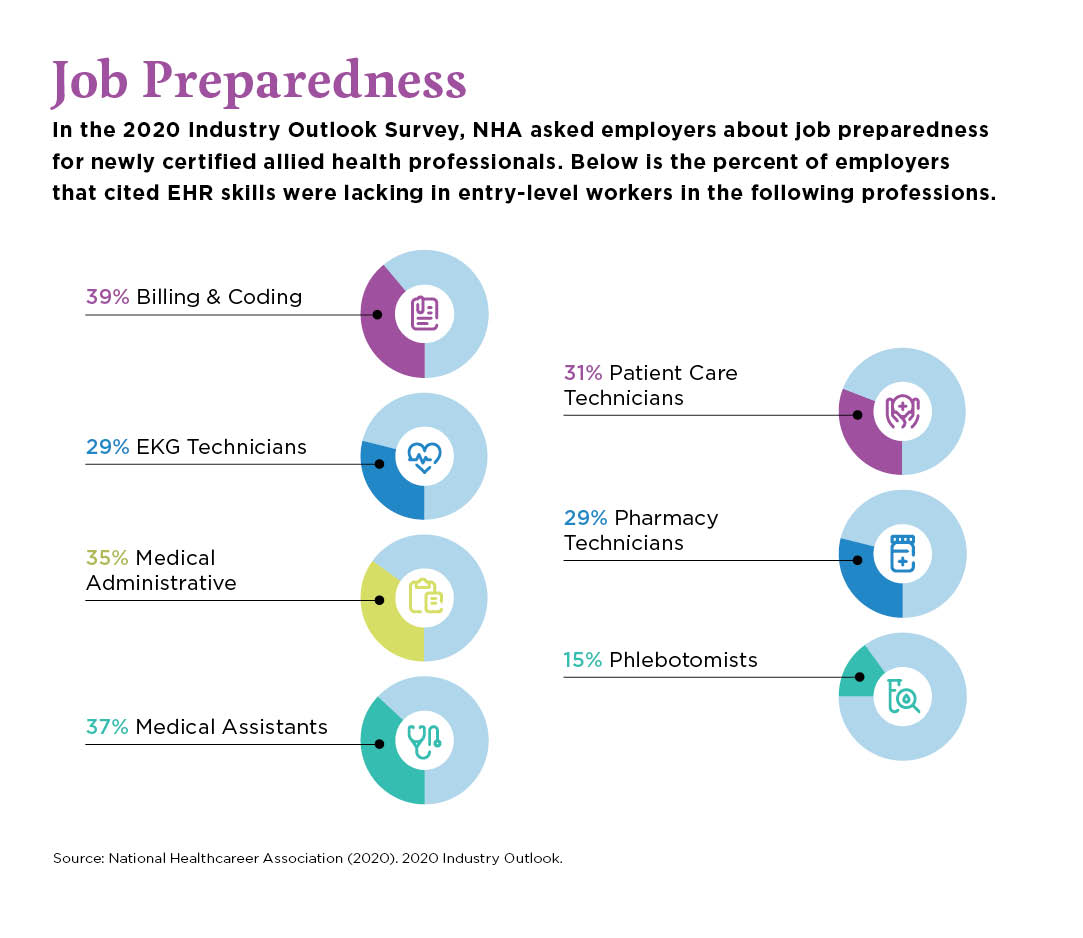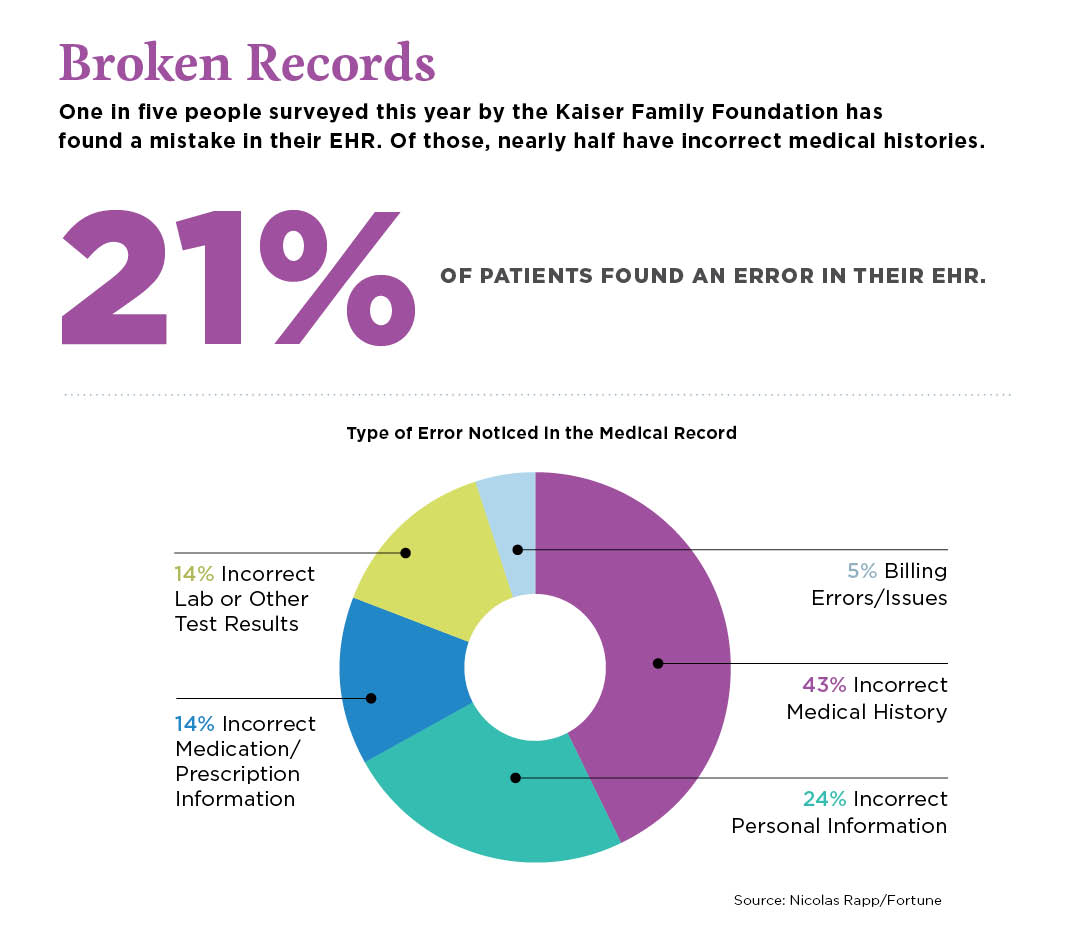We all know that the Covid-19 pandemic has triggered change across multiple industries, particularly affecting healthcare, education, and the U.S. economy. Now more than ever, the role credentials play is top-of-mind, as having advanced certifications and skills serve to help job seekers stand out amongst other candidates in a very competitive job market.
Additionally, those seeking credentials through educational programs and schools help keep educators employed. And the benefit to employers is that credentialed employees ensure a workforce that is highly skilled.
The Numbers Don’t Lie
Working with WorkCred and the Credential Engine, NHA aims to create a more integrated and effective credentialing system and to better understand the quality of credentials offered.
The following data points have been shared through WorkCred’s various publications:
- There are almost 1Million unique credentials offered across the U.S.
- $2Trillion is spent annually on education and training.
- Certifications have been in higher demand over the last year due to the Covid-19 pandemic, increased workforce demand and changes in technology.
- More than 55 Million people filed for unemployment over the last year.
- 1/3 feel that they will need additional education or new skills to find a job.
- 35% of individuals are planning to change careers if they lose their job.
- Workers with certifications are more likely to see their job as a career (54% versus 37% of those without)
- Adults without a degree but who hold a certificate/certification have higher full-time employment rates vs those without. (85% versus 78%)
- Credential holders also have a median income of $45,000 (compared to $30,000 for those without a credential).
 Choosing a Credential
Choosing a Credential
When choosing a credential, there are many things to consider.
- Flexibility and Relevance - Before you commit to anything, look for a credentialing partner who is flexible and understands the challenges of today’s students and job seekers.
- Accredited - You should also always seek out accredited certification exams to ensure market validity.
- Preparation Assistance - To assist with exam success, the credential partner should provide certification exam preparation resources.
- Progress Reports - An important part of the preparation process is having the ability to provide data and analytics support. This can be used to positively impact a candidates’ or programs’ testing outcome by reinforcing concepts that need more understanding and identifying comprehension gaps in curriculum or training.
- Industry Credibility - It is important for credentials to have industry awareness or recognition. Pursuing standardized certification education and exam qualifications is the single best method for improving and individual's performance in the field.
Advantage of Stacking Credentials
“Stacking” credentials means adding on additional certifications. When certification holders stack credentials, studies show that their hiring potential is increased as they have proof of an enlarged knowledge base and skill set.
“As somebody who has interviewed people before, that [multiple credentials] tells me this person has put a lot of effort and time into wanting to do this job.” – Barb Patterson, Pre-Nursing Instructor
Winning Credential Combinations
How do you know what credentials go best together? One way to look at it is to consider the overall career goal of the certification(s) holder. For example, for someone working in a medical office, the following “credentials stack” makes for not only an impressive resume but also an impressive skill set:
- Certified Billing + Coding Specialist (CBCS) – The NHA CBCS certification has recently been updated to include not only an equal emphasis on billing AND coding (most CBCS certifications focus on one or the other), but it also has been expanded to cover important foundational concepts like the full revenue cycle and how billing and coding plays an important role in medical office’s reimbursements and overall profit. Armed with this certification, a job candidate shows that they are a valuable asset to any medical office team. The NHA CBCS exam proves competency in the following areas:
- The revenue cycle and regulatory compliance
- Insurance eligibility and other payer requirements
- Coding and coding guidelines
- Billing and reimbursement
The skills learned when studying medical billing and coding can be used in surgery centers, mental health facilities, dental offices, physicians’ offices, home healthcare agencies, and more, and certification holders who want to work in a healthcare office setting would do well to start with the billing and coding credential. For more on NHA’s expanded CBCS certification exam, click here.

- Certified Electronic Health Records Specialist (CEHRS) – Electronic health records skills are highly sought-after in the healthcare industry, and many healthcare students and employees pursue the CEHRS credential to help them stand out and establish more career potential and higher earnings. From processing information requests to auditing patient records for compliance, a nationally certified electronic and health records specialist makes a valuable contribution to a well-run medical office as they can help reduce errors in patient information.

- Certified Medical Administrative Assistant (CMAA) – Medical administrative assistants are also often referred to as medical office assistants or medical secretaries. They play a key role in the overall patient experience and they help keep offices running smoothly. From scheduling appointments to operating office software and equipment, the medical administrative assistant has a wide variety of job responsibilities.
According to NHA’s 2020 Industry Outlook survey, 75% of employers require or encourage certification when hiring medical administrative assistants. The CMAA certification is an important credential to have for anyone wanting to serve the public in a front or back-office position, and it stacks well with CBCS or CEHRS to make a well-rounded employee who is an asset to an employer.
The NHA Difference
NHA supports industry-recognized credentials that assess skills and competencies defined by industry and that are transparent. These credentials are also validated by third-party verification and are recognized and valued by employers. They can be used to both provide entry into a career pathway or to serve as a stepping stone to higher education and career advancement. An industry-recognized credential often ensures or enables lifelong learning throughout an employee’s career journey, with multiple credentials enhancing that journey even more.
For additional information about the U.S. credentialing landscape and the value in stacking credentials, visit www.workcred.org or www.nhanow.com.




